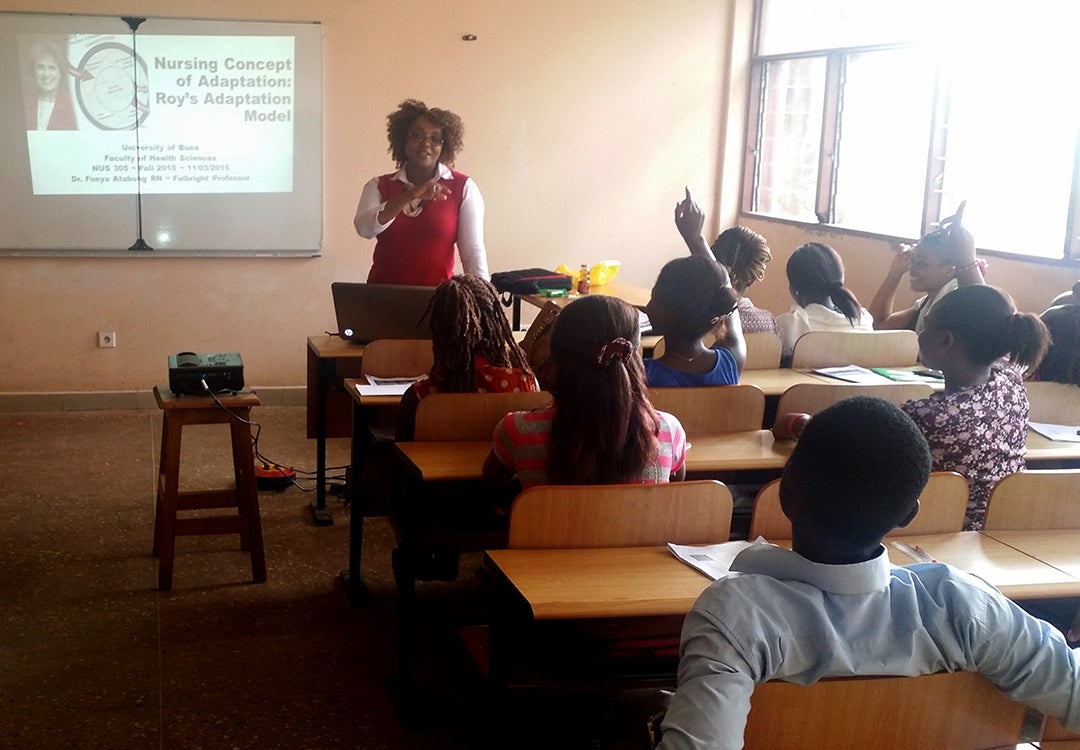Fonya Atabong Reflects on Her Journey
By Michelle Simakis
Her plans to return to Cameroon as a Fulbright Scholar brought back a lot of memories for Fonya Atabong, DNP, RN (NUR ’12).
Atabong, an assistant professor of medical surgical/pediatric nursing at Northern Virginia Community College, grew up in Cameroon and looked forward to reuniting with family there. But the reunion was also painful. She had lost family members, including her father, due to inadequate care for preventable illnesses.
“Family is priority number one for my life,” says Atabong, whose 12-month placement included her husband and two children, ages six and nine. “My father’s passing is the reason I applied to be a Fulbright. He has helped me to pursue what I’m doing with my professional life — giving back and trying to make things better for others.”
The lack of proper health care starts from birth in Cameroon. Child mortality and death from childbirth are high. According to UNICEF, Cameroon has one of the highest child mortality rates, at 148 per 1,000, and the organization calls maternal mortality “alarmingly high” at 670 per 100,000 births. In the United States, the numbers are seven and 28, respectively.
Atabong’s mission was to help reverse the mortality rates through empowerment and education of both caregivers and patients.
The Ministry of Public Health in Cameroon had established midwifery practices in 10 regions to improve care of women and children. But, the midwives lacked formal education and the death rates didn’t budge. Atabong worked with the ministries of public health and education as well as the University of Buea on a partnership that included the creation of an accelerated bachelor’s degree for midwifery.
Due to the severity of the mortality rates, she reduced the program from four years to three while maintaining its academic rigor. Her goal was to teach midwives not only how to handle crises, but how to monitor their patients and recognize complications earlier.
“We wanted to educate and nurture midwives with the right tools to enable them to advocate, and intervene in a timely manner, as well as empower and educate their patients across their lifespans,” she says.
Atabong says her education at Frances Payne Bolton School of Nursing helped her prepare for the leadership role in Cameroon. She wanted to stay longer, but she’s confident knowing she left the right tools – including 100 textbooks she personally donated – for current and future students.
“Education is very, very powerful,” Atabong says. “If you are well educated, you can make better choices for yourself, for your life. Once you are able to do that, you will be able to help those in need.”


